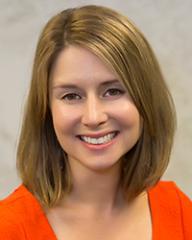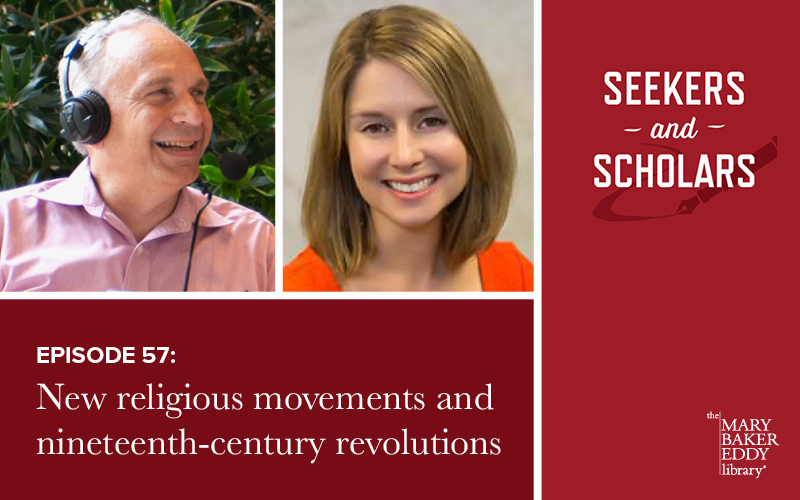In the scholarly world, Christian Science is often thought of as a “new religious movement.” What does that mean? Does it simply signify a religion’s place in time? Or does it mean something more? We’ll explore these questions with Dr. Lydia Willsky-Ciollo, who researches, writes, and teaches on the subject of NRMs. With a background in nineteenth-century American religious history, she provides a lens through which to examine how the emergence of Christian Science as a religious movement—and of Mary Baker Eddy as a religious leader—fit into a time of dramatic religious innovation. Willsky-Ciollo looks at the tensions and complexities inherent in categorizing NRMs, and how they apply to Christian Science and its founder.
Podcast guest
 Dr. Lydia Willsky-Ciollo is an American religious historian who specializes in the nineteenth century. Her focus is on Unitarians and Transcendentalists, new religious movements, and women’s rights advocacy and activism. In her pedagogy, she aims to disrupt traditional narratives of “true” and “false” religion, challenging canonical narratives of American religion by incorporating voices often dismissed as outliers to the mainstream. She is the author of American Unitarianism and the Protestant Dilemma: The Conundrum of Biblical Authority (Lexington Books, 2015) and co-author with Eugene Gallagher of New Religions: Emerging Faiths and Religious Cultures in the Modern World (ABC-CLIO, 2021). Among other journals, she has published in Nova Religio, Harvard Theological Review, and The New England Quarterly. Currently she is working on a book project examining Henry David Thoreau’s “theology of wildness,” as well as a profile on Mary Baker Eddy for the World Religions and Spirituality project.
Dr. Lydia Willsky-Ciollo is an American religious historian who specializes in the nineteenth century. Her focus is on Unitarians and Transcendentalists, new religious movements, and women’s rights advocacy and activism. In her pedagogy, she aims to disrupt traditional narratives of “true” and “false” religion, challenging canonical narratives of American religion by incorporating voices often dismissed as outliers to the mainstream. She is the author of American Unitarianism and the Protestant Dilemma: The Conundrum of Biblical Authority (Lexington Books, 2015) and co-author with Eugene Gallagher of New Religions: Emerging Faiths and Religious Cultures in the Modern World (ABC-CLIO, 2021). Among other journals, she has published in Nova Religio, Harvard Theological Review, and The New England Quarterly. Currently she is working on a book project examining Henry David Thoreau’s “theology of wildness,” as well as a profile on Mary Baker Eddy for the World Religions and Spirituality project.



